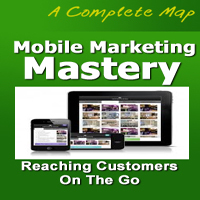


Navigating The Challenges Of An Ever-Changing World

The world we live in is inherently uncertain. Life is filled with surprises, unexpected twists, and unforeseen challenges. While uncertainty can be unsettling, it's also an opportunity for growth, resilience, and innovation. In this article, we will explore the concept of thriving in uncertainty and how individuals and organizations can navigate the challenges of an ever-changing world.
The Nature Of Uncertainty: Uncertainty is a constant in our lives. Whether it's economic fluctuations, global crises, personal setbacks, or unexpected opportunities, we continually find ourselves in situations where the outcomes are uncertain. The first step in thriving amidst uncertainty is to acknowledge its existence and accept that it is an intrinsic part of the human experience.
Adapting To Change: Uncertainty often arises from change, and our ability to adapt is key to thriving in uncertain times. Embracing change and being open to new possibilities can turn the unknown into an opportunity for personal and professional growth. Organizations that foster a culture of adaptability are more likely to succeed when faced with unpredictable circumstances.
Resilience And Mental Agility: Building resilience is another essential aspect of thriving in uncertainty. Resilience involves the ability to bounce back from adversity, learn from setbacks, and keep moving forward. It's a quality that can be cultivated through practices such as mindfulness, self-reflection, and a growth mindset.
Mental agility, or the capacity to think critically and creatively in the face of uncertainty, is also crucial. This skill allows individuals and organizations to find innovative solutions and seize unforeseen opportunities. It's about embracing uncertainty as a chance to learn, grow, and discover new perspectives.
Strategic Planning And Contingency Preparation: While embracing uncertainty is important, it doesn't mean we should abandon all forms of planning. Strategic planning, with built-in flexibility, is a powerful tool for thriving in uncertain times. It involves setting clear goals, monitoring progress, and making necessary adjustments as circumstances evolve.
Contingency planning is also essential. It involves preparing for various possible outcomes and having a backup plan in case things don't go as expected. This proactive approach helps reduce anxiety and provides a sense of control in uncertain situations.
Effective Decision-Making: Uncertainty can paralyze decision-making, but indecision often leads to missed opportunities. It's important to develop decision-making skills that allow for well-informed, yet timely, choices. This includes gathering relevant information, seeking expert advice, and being open to changing course if needed.
Learning And Growth Mindset: In uncertain times, a learning and growth mindset can be a powerful asset. People who view challenges as opportunities to learn and improve are more likely to thrive. They see setbacks as stepping stones to success and remain open to change and development.
Building A Support System: Thriving in uncertainty is not a solitary endeavor. Building a strong support system of friends, family, mentors, and colleagues can provide encouragement, advice, and a sense of community. These connections can offer insights, guidance, and emotional support when needed most.
Thriving in uncertainty is not about eliminating unpredictability but learning to navigate it with confidence and resilience. It's about developing the skills and mindset to embrace change, adapt to new situations, and find opportunities within the unknown. While uncertainty can be challenging, it is also the fertile ground where innovation and growth often flourish. By embracing uncertainty, we can not only survive but truly thrive in an ever-changing world.
 Benefits Of Niche Marketing In The Digital Landscape
Benefits Of Niche Marketing In The Digital Landscape
Cost-Efficiency: One of the primary benefits of niche marketing in the digital landscape is cost-efficiency. Traditional mass marketing often requires significant financial resources to reach a broad audience. In contrast, niche marketing allows you to focus your resources on a smaller, highly targeted group, reducing wasted marketing spend.
Higher Conversion Rates: By addressing the specific needs and preferences of a niche audience, your message resonates more strongly. This increased relevance leads to higher conversion rates, as the audience is more likely to engage and make a purchase.
Competitive Advantage: Niche marketing enables you to establish a competitive edge. In a crowded digital marketplace, standing out can be challenging. Focusing on a specialized segment can help your business become a recognized expert in that niche, building trust and loyalty among consumers.
Improved Customer Loyalty: Niche marketing often leads to stronger customer relationships. When your products or services genuinely address the unique pain points or desires of a specific audience, you foster loyalty and repeat business.
Data-Driven Insights: The digital landscape provides an abundance of data that you can use to refine your niche marketing strategies. Analytics tools offer valuable insights into consumer behavior and preferences, enabling continuous improvement of your approach.
Implementing Niche Marketing Online
To succeed in niche marketing within the digital landscape, businesses must follow a structured approach:
Market Research: Identify potential niche markets by conducting thorough research. Look for gaps in the market, unmet needs, or underserved customer segments.






Unlocking Success
 3. Precision And Quality: Essential tools often provide a level of precision and quality that is challenging to achieve without them. From high-quality power tools for woodworking to advanced software for graphic design, these tools contribute to the precision and excellence of work.
3. Precision And Quality: Essential tools often provide a level of precision and quality that is challenging to achieve without them. From high-quality power tools for woodworking to advanced software for graphic design, these tools contribute to the precision and excellence of work.
4. Cost Savings: While essential tools may require an initial investment, they often result in cost savings in the long run. By streamlining processes and reducing the need for manual labor, these tools can lead to significant cost efficiency.
5. Versatility: Many essential tools are versatile, capable of performing various functions. This versatility can be especially valuable for individuals and businesses that need to adapt to changing circumstances and demands.
6. Time Savings: Essential tools can dramatically reduce the time required to complete tasks. In professional settings, time savings translate to increased productivity and the ability to take on more projects or serve more clients.
7. Precision And Accuracy: In fields where precision and accuracy are paramount, essential tools are irreplaceable. Whether it's a surgeon's scalpel, a surveyor's level, or a programmer's coding software, these tools ensure that critical work is done correctly.
8. Innovation And Creativity: Tools that are specifically designed for creativity, such as art supplies, musical instruments, and software for design, foster innovation and enable individuals to express their creativity in unique ways.
How Smartphones And Tablets Have Become Our Indispensable Companions
 The Rise Of Smartphone Dependence
The Rise Of Smartphone Dependence
Smartphones, in particular, have witnessed an unprecedented surge in popularity and reliance. These pocket-sized powerhouses have replaced not only traditional cell phones but also a myriad of other devices and tools. They have become our cameras, wallets, alarm clocks, notepads, and even our primary means of accessing the internet. The rise of mobile apps has revolutionized the way we work and play, allowing us to perform countless tasks with a few taps and swipes.
Tablets As Versatile Partners
While smartphones are the primary drivers of mobile device reliance, tablets also play a significant role. Tablets offer a larger screen and more comfortable interface for various tasks, from watching movies to working on documents. Many users opt for tablets as complementary devices, bridging the gap between smartphones and laptops. Their versatility makes them ideal for leisure, education, and productivity, reinforcing the reliance on mobile technology.
Businesses And Mobile Marketing
Businesses have swiftly recognized the immense potential in harnessing this reliance on mobile devices. Mobile marketing has become a cornerstone of marketing strategies, allowing companies to connect with customers on the go.
Strategies For Success
 3. Fierce Competition
3. Fierce Competition
The online advertising space is highly competitive, with numerous businesses vying for the attention of the same audience. It can be challenging to stand out amid this fierce competition. To overcome this challenge, marketers should focus on unique value propositions, targeted niche audiences, and creative ad placements to gain a competitive edge.
4. Data Privacy Concerns
Growing concerns about data privacy and regulations like GDPR have made it challenging for marketers to collect and use consumer data for ad targeting. To address this challenge, advertisers must ensure they comply with relevant data protection regulations and focus on transparent data collection and usage practices. They should also seek explicit consent from users when gathering data.
5. Ad Fraud
Ad fraud is a pervasive issue in online advertising, leading to wasted ad spend and skewed performance metrics. Marketers should use ad verification tools and work with reputable ad networks to minimize the impact of ad fraud. Regularly monitoring ad campaigns and analyzing performance data can also help identify and address fraudulent activities.
6. Ad Viewability
Ensuring that ads are viewable to the target audience is a crucial challenge. Marketers should optimize ad placements to enhance viewability, track viewability metrics, and invest in high-impact ad formats to increase the likelihood of ads being seen by users.
7. Mobile Optimization
With the increasing use of mobile devices, advertisers must ensure their ad campaigns are optimized for mobile viewing. Responsive design and mobile-specific ad formats are essential for reaching mobile audiences effectively.
8. Ad-Blocking Laws And Regulations
Different regions have specific laws and regulations concerning online advertising. Staying compliant with these rules can be a significant challenge. Marketers should invest in legal counsel, maintain up-to-date knowledge of regional regulations, and conduct due diligence to adhere to legal requirements.
A New Era Of Flexibility And Opportunity
 The Gig Economy And Its Influence: The gig economy, marked by the rise of short-term, independent work arrangements, has played a pivotal role in the emergence of home-based gig workers. It encompasses a wide range of professions, from freelance writers and graphic designers to virtual assistants, software developers, and online tutors. These professionals are not limited by geographical constraints, and they often utilize online platforms to connect with clients and secure work opportunities.
The Gig Economy And Its Influence: The gig economy, marked by the rise of short-term, independent work arrangements, has played a pivotal role in the emergence of home-based gig workers. It encompasses a wide range of professions, from freelance writers and graphic designers to virtual assistants, software developers, and online tutors. These professionals are not limited by geographical constraints, and they often utilize online platforms to connect with clients and secure work opportunities.
The Appeal Of Home-Based Gig Work: Several factors contribute to the appeal of home-based gig work:
Flexibility: Home-based gig workers enjoy the freedom to set their own schedules and work on projects that align with their skills and interests. This flexibility allows for a better work-life balance and the opportunity to pursue multiple income streams simultaneously.
Remote Work: The rise of digital communication tools and high-speed internet has made remote work more accessible than ever. Home-based gig workers can collaborate with clients and colleagues around the world from the comfort of their homes.
Diverse Opportunities: The gig economy offers a diverse range of opportunities across industries and professions. As a result, individuals can choose work that suits their expertise and passions, leading to greater job satisfaction.